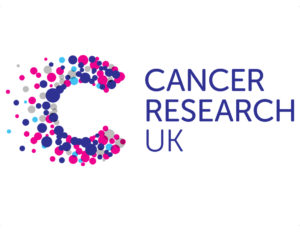BEST3 Trial: Cytosponge-trefoil factor 3 versus usual care to identify Barrett’s oesophagus in a primary care setting: a prospective, multicentre, pragmatic, randomised controlled trial
Start Date Oct 2016
Code C8-Aff
Status Completed
Early detection of oesophageal cancer improves outcomes; however, the optimal strategy for identifying patients at increased risk from the pre-cancerous lesion Barrett’s oesophagus (BE) is not clear. The Cytosponge, a novel non-endoscopic sponge device, combined with the biomarker Trefoil Factor 3 (TFF3) has been tested in four clinical studies. It was found to be safe, accurate and acceptable to patients.
The BEST3 trial is a pragmatic multi-site cluster-randomised controlled trial set in primary care in England. Approximately 120 practices will be randomised 1:1 to either the intervention arm, invitation to a Cytosponge-TFF3 test, or the control arm usual care. Inclusion criteria are men and women aged 50 or over with records of at least six months of prescriptions for acid-suppressants in the last year. Patients in the intervention arm will receive an invitation to have a Cytosponge-TFF3 test in their general practice. Patients with a positive TFF3 test will receive an invitation for an upper gastro-intestinal endoscopy at their local hospital-based endoscopy clinic to test for BE.
Funding
Cancer Research UK
Aims & objectives
The aim of the BEST3 trial is to evaluate if the offer of a Cytosponge-TFF3 test in primary care for patients on long term acid suppressants leads to an increase in the number of patients diagnosed with BE.
The primary objective is to compare histologically confirmed BE diagnosis between the intervention and control arms to determine whether the offer of the Cytosponge-TFF3 test in primary care results in an increase in BE diagnosis within 12 months of study entry.
Methodology
We are leading the GP and patient acceptability part of the trial, analysing questionnaires completed before and after the test, and conducting interviews with a patients who have the Cytosponge test and GPs and nurses involved with the test in general practices.
Publications
- Offman J, Muldrew B, O’Donovan M, Debiram-Beecham I, Pesola F, Kaimi I, Smith S, Wilson A, Khan Z, Lao-Sirieix P, Aigret B, Walter FM, Rubin G, Morris S, Jackson C, Sasieni P, Fitzgerald RC, on behalf of the BEST3 Trial team. Barrett’s oESophagus Trial 3 (BEST3): Study protocol for a randomised controlled trial comparing the Cytosponge-TFF3 test with usual care to facilitate the diagnosis of oesophageal pre-cancer in primary care patients with chronic acid reflux. BMC Cancer, 2018;18:784. doi: 10.1186/s12885-018-4664-3.
- Fitzgerald RC, Di Pietro M, O’Donovan M, Maroni R, Muldrew B, Debiram-Beecham, Gehrung M, Offman J, Tripathi M, Smith S, Aigret B, Walter FM, Rubin G, on behalf of the BEST3 Trial team, Sasieni P. Randomised, Controlled Trial of Cytosponge-TFF3 test compared with usual care to identify Barrett’s esophagus in primary care. In press, Lancet.



